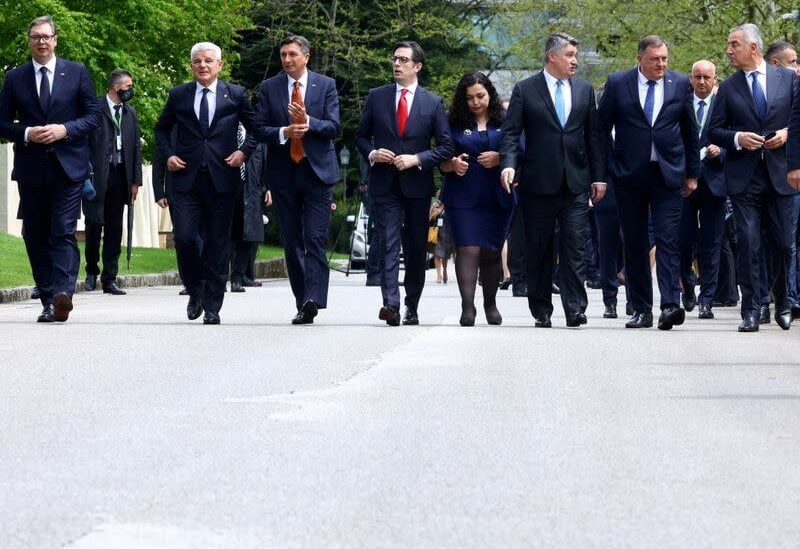
When European Union leaders convene next week for a summit, Bosnia’s international peace envoy has urged them to convey a message of encouragement to the six Balkan countries seeking membership in the group.
At the EU summit in Slovenia on Oct. 6, he made his pitch as EU member states struggle to agree on whether they can guarantee the six countries a future in the bloc.
“The summit must send a strong message that Europe is interested in a European Balkans,” Christian Schmidt, the international High Representative for Bosnia and Herzegovina, told Reuters.
His office is in charge of implementing the Dayton peace deal, which ended Bosnia’s 1992-95 war, which claimed 100,000 lives. The war was one of the ethnic wars that erupted as Yugoslavia dissolved in the 1990s.
Schmidt warned that tensions in the Balkans are on the rise once more.
A border conflict between Serbia and Kosovo has erupted, and regional discontent with the lack of progress in EU enlargement talks is mounting.
The summit was supposed to give expansion a new lease on life, but it was overshadowed by debate among EU countries over whether the group should reiterate its vow to admit Serbia, Kosovo, Bosnia and Herzegovina, Albania, and North Macedonia.
Supporters of enlargement caution that Chinese and Russian influence in the Balkans is growing as the EU hesitates.
Schmidt, a former government minister in Germany, called for concrete steps to bring the six countries closer to the bloc and improve the lives of their citizens.
“The citizens and politicians of the six countries … are waiting for a clear signal paving the way for closer cooperation with the EU,” he said in comments to Reuters on Wednesday.
Steps could include increasing convergence with cheaper EU roaming tariffs for mobile telephone users, a better infrastructure or a closer economic connections between the Balkans and the EU, Schmidt said.
He cautioned that many young people in Bosnia, discouraged by the lack of progress towards EU membership, were ready to emigrate.
“There are many well educated people who don’t work in the Balkans because they either don’t find jobs there or because they have gone abroad, to work in Austria or Germany,” Schmidt said.